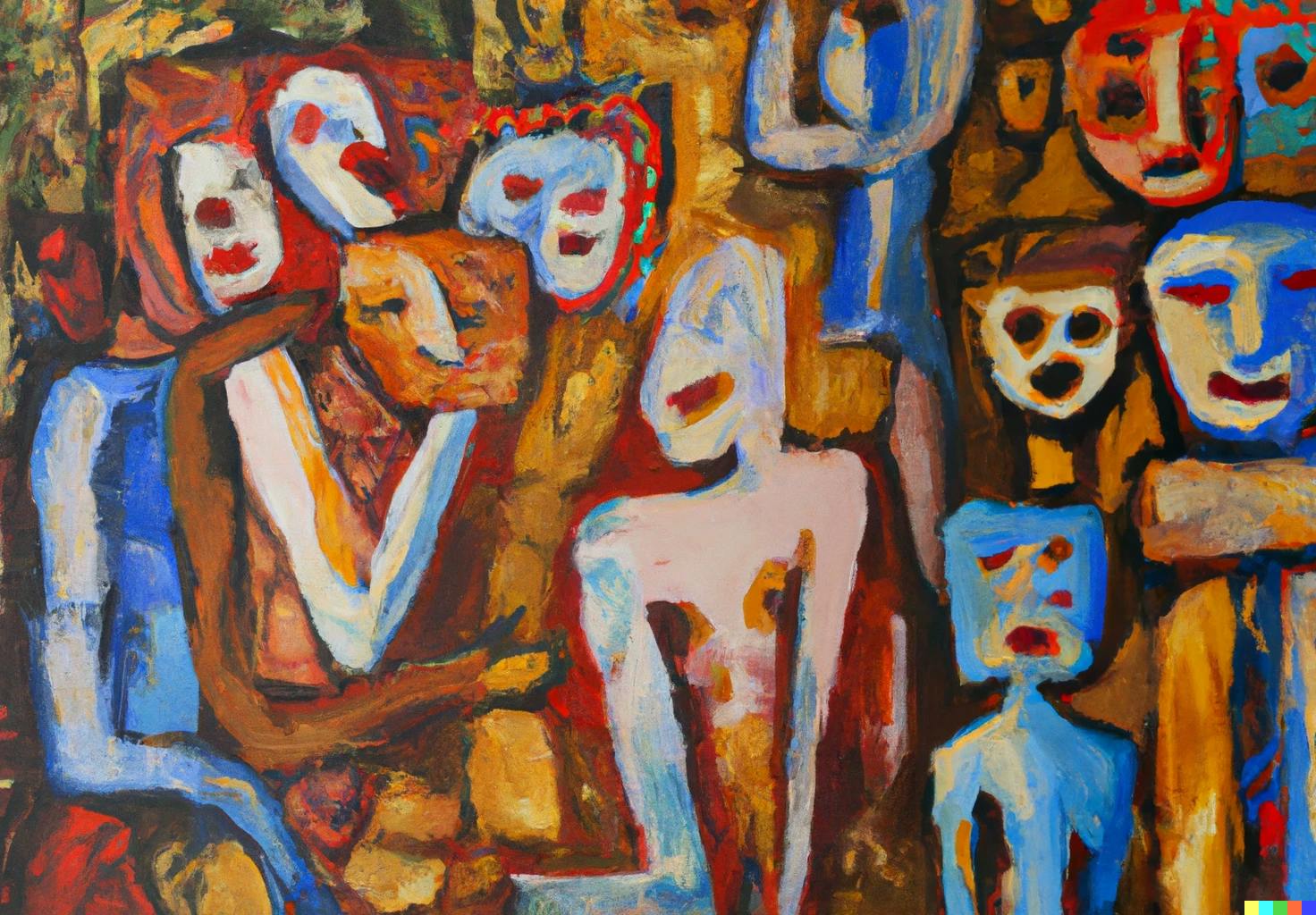human relationality
2023-01-15 · 3 min reada new perspective on how to view life (taken from paul kalanith’s when breath becomes air)
"What is meaning in life?"
I find myself asking that question constantly, from my 3rd grade self finding meaning in eating food to philosophical tirades in high school debate. Honestly I thought philosophers had it mostly down—existentialism, virtue ethics, hedonism, error theory (my favorite), to even intuitionism. Finally I just settled on a vague idea of "happiness", a (simple but) complete solution.
Though, while reading "When Breath Becomes Air" by Paul Kalanith one word stood out to me: human relationality. Initially thinking through the idea as "K-literature jargon", the text around it ended up changing my mind:
A word meant something only between people, and life’s meaning, its virtue, had something to do with the depth of the relationships we form. It was the relational aspect of humans—i.e., “human relationality”—that undergirded meaning.
Looking at meaning through the lens of "human relationality" made my life in retrospect make sense. Thinking back to all the times where I've been the happiest, one thing stands out—they've been with people. If pure happiness was the factor, I'm sure food would be at the top, but that's almost never what comes to mind. Even when enjoying media or art, similar to Camus, those are just abstractions of connections with other humans. Humans tend to be at the center of meaning.
The book also takes a unique approach to storytelling, not necessarily having a plot, a happy ending, or even a solid moral conclusion. Seeing the journey of someone start looking for meaning, end up blinding themselves (metaphorically) in their journey, and finally finding meaning in the people around him, makes you think—is looking for meaning in life worthwhile? Or to better phrase it, should one even look for meaning in life?
This idea struck a chord with me, especially after that simple question being such a core facet of my internal monologue; searching for meaning can elucidate you to the "true meaning". Whenever I've felt the happiest, its not because I've necessarily been optimizing towards that feeling my entire life. I've felt that way when I've been with people, enjoying life. Similar to how working with cadavers creates numbness to human connection, I think searching meaning can numb you to "real" meaning around you in life.
Similar to optimization problems, staying stable in one spot just thinking won't help—exploration and living life will (especially if your "meaning" is human relationality).
With that idea combined with human relationality, it provides a decent basis for life—finding meaning in the relationships around you, while not overthinking it too much.
This all begs the question of why. Especially as a relativist, why contemplate meaning in life? Similar to my post on simulations, I believe we constantly live in abstractions—do well in school, make money, get into college, make a promotion—which is great short term. Long term these bring us away from our core values, even making us forget them (hence feelings of regret/emptiness). Searching for meaning (not excessively like I said before, but at least thinking about it) in my opinion, just grounds all of these simulations to a singular goal, making sure you're not on autopilot 24/7.
TLDR; Human relationality is a cool concept, and you shouldn't think too much about the meaning to life but instead just enjoy the people around you.
Hope this helps broaden someones understanding in some way and I definitely recommend giving When Breath Becomes Air a read!
